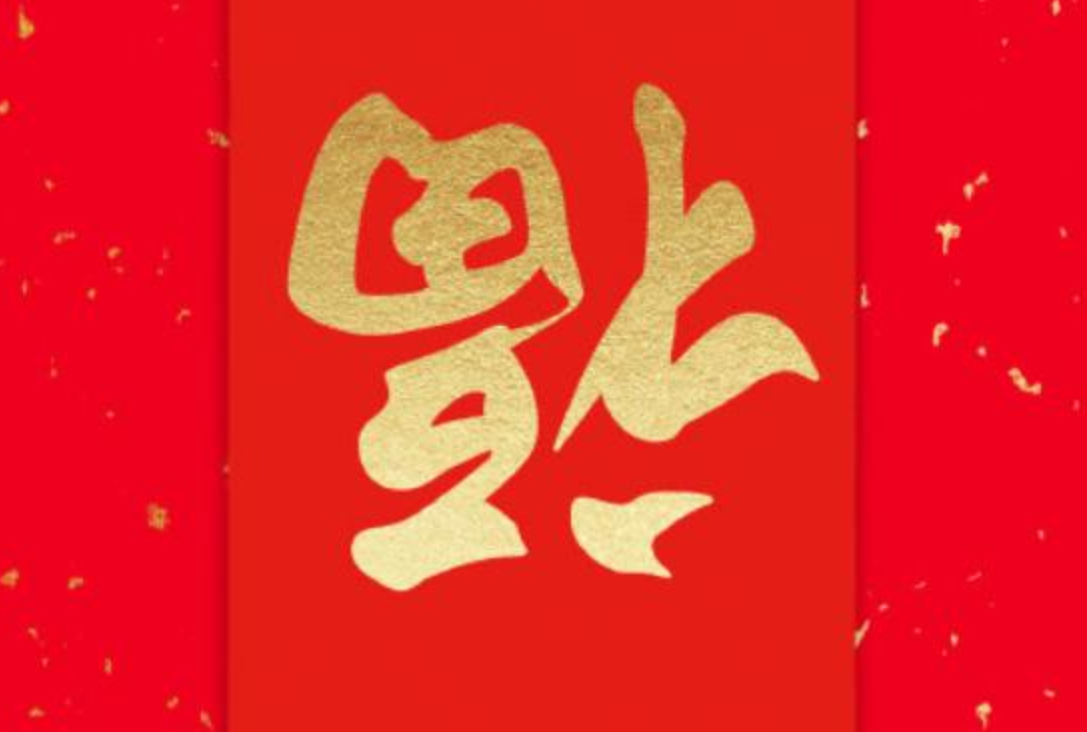贴“福”迎春过新年,倒贴“福”字因为何?

Fu, one of the Chinese characters that best reflect China’s time-honored culture, is a necessity in Spring Festival celebrations. Nowadays, Fu, literally meaning blessing or happiness, usually appears as a cultural symbol to express people’s wishes for the coming new year. Yet, in the past, the character mainly meant luck and fortune.
The tradition of pasting the character Fu on walls and doors has existed among the people for a long time. According to Menglianglu, a book recording the folk customs in the Song Dynasty (960-1127), people at that time had already been practicing the tradition. The character can either be written or printed. It can be pasted both normally and upside down because in Chinese the “reversed Fu” means “Fu comes”.
There is a legend among the people about the origin of the pasting the “reversed Fu”. Zhu Yuanzhang, the first emperor of the Ming Dynasty (1368-1644), once planned to kill a family and marked them with the Chinese character Fu. In order to avoid killing, Zhu’s wife, Empress Ma, ordered every family in the capital to paste the character Fu in front of their doors.
All the people followed the empress’s order, but one family didn’t know how to read or write. They had pasted the character upside down. On the second day when the soldiers went to the streets, they found the character everywhere, including the upside down one. When the emperor heard this, he was very angry at the reversed Fu, and immediately ordered his guards to kill the family who had pasted the character in the wrong way.
Empress Ma tried to avoid the killing and quickly explained, “That family had known that you would come to visit them today, so they pasted the character upside down intentionally. Doesn’t that mean ‘Fu comes’ today?” The emperor agreed with his wife and released the family. From that time on, people began to paste Fu upside down to express the good wills for fortune and luck and to remember Empress Ma.
原创编写 版权所有 侵权必究! 每日更新 个性化阅读 英语飙升!